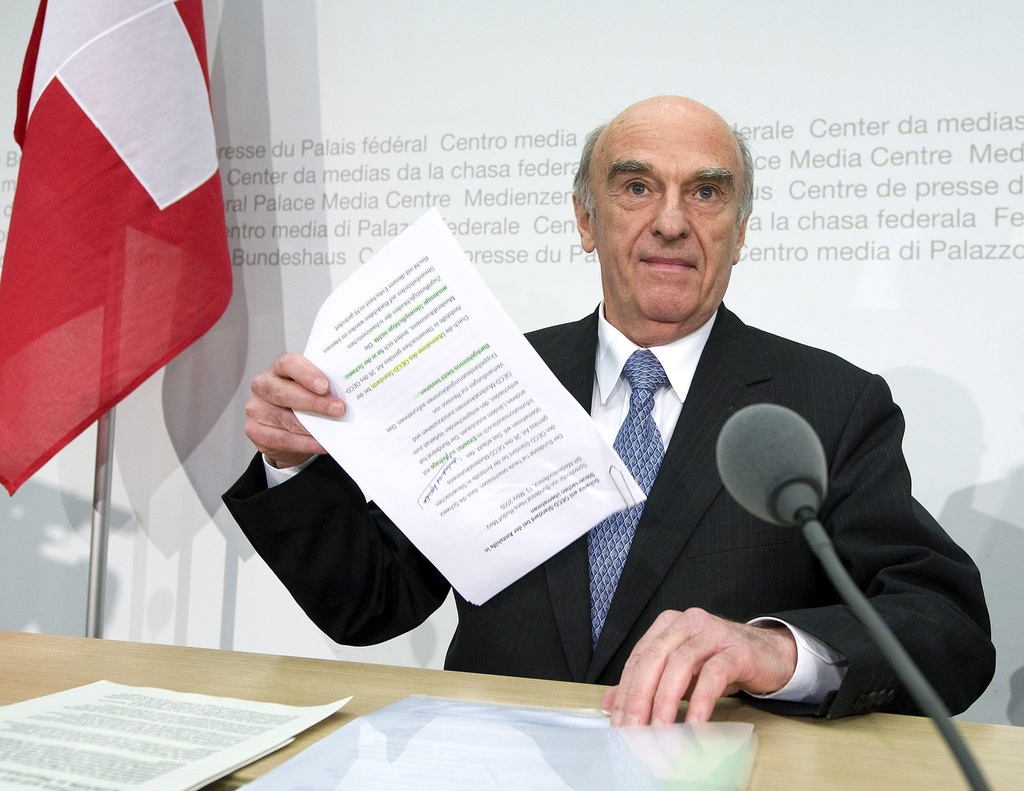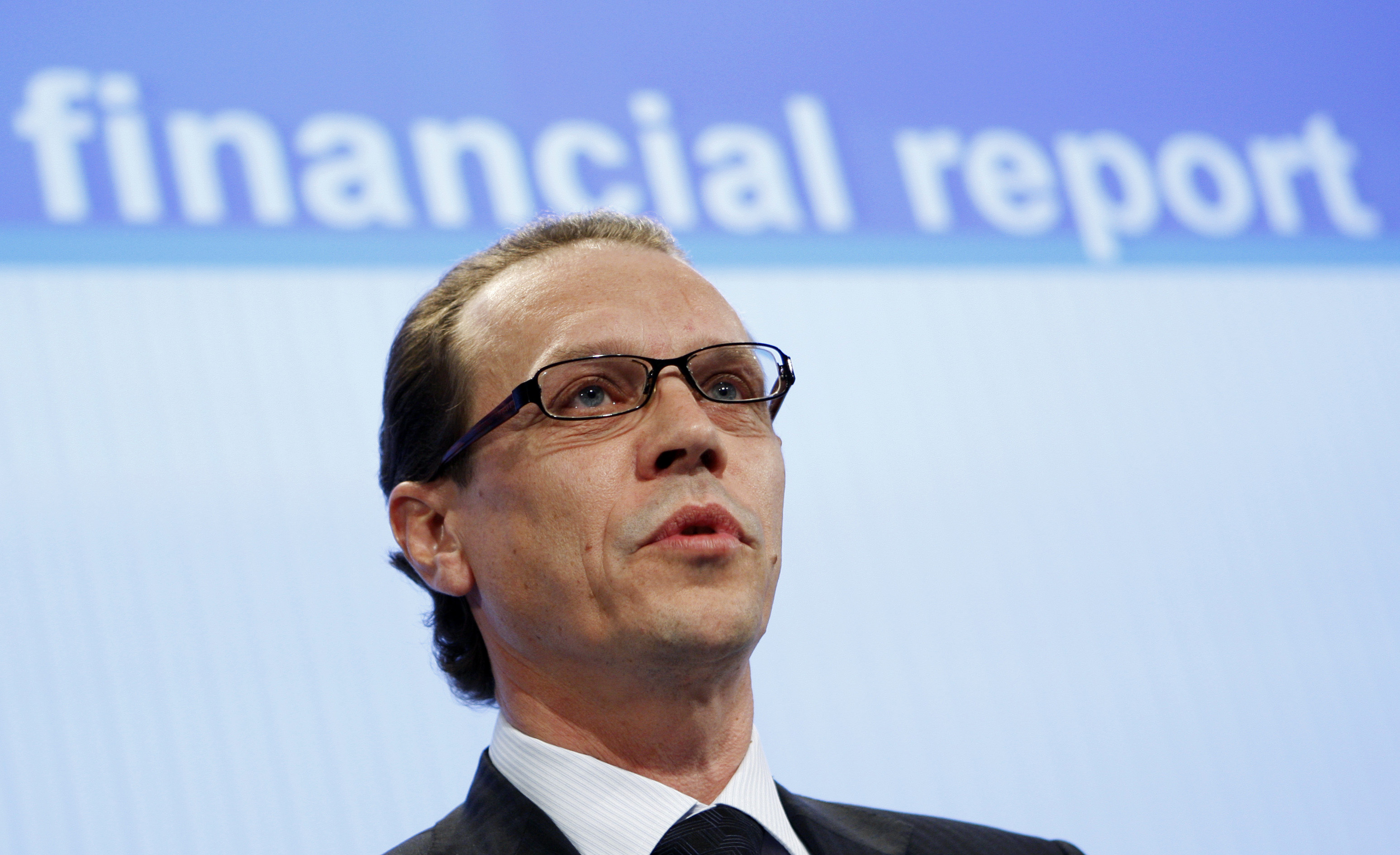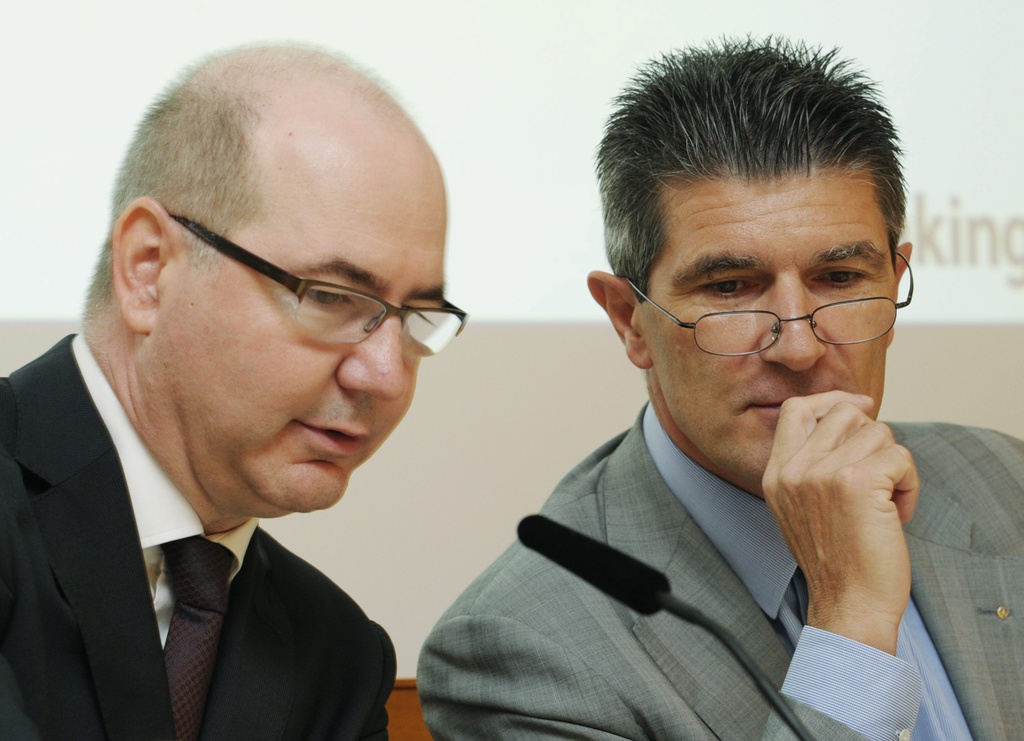Banking secrecy is made to measure

The days when Swiss finance ministers described banking secrecy as “non-negotiable” are over. The ideal is being relaxed to varying degrees with several states.
Double taxation agreements (DTAs) are bilateral treaties which prevent citizens and companies which earn an income in one country from being taxed again in another. Basically, they should prevent Swiss firms from being at a disadvantage to foreign competition.
For three years DTAs have meant governments help each other out with tax crimes, going after foreign tax dodgers who have stashed their cash in Swiss banks.
On March 13, 2009, the then Finance Minister Hans-Rudolf Merz announced Switzerland wanted to renegotiate DTAs with the most important nations and thus respect Article 26 of the Model Tax Convention of the Organisation for Economic Co-operation and Development (OECD).
This meant Switzerland would no longer restrict its administrative assistance to cases of presumed tax fraud (which involves the falsification of documents). It would also provide information where tax evasion is suspected – in other words, where money not declared to national tax authorities has been deposited in a Swiss bank.
In so doing, the government wanted to get Switzerland removed from an OECD blacklist of tax havens. In practice, it was a softening of Merz’s “non-negotiable” banking secrecy.
In the meantime Switzerland has signed Article 26-friendly DTAs with 35 countries. The majority of the 80 DTAs Switzerland has signed correspond to the period before March 2009.
Since then, the OECD has modified the regulations for administrative assistance. As a result, the cabinet felt obliged in February this year to renegotiate and redefine part of the new DTAs.
US case
According to the expanded OECD standard, when applying for administrative assistance, name and address is no longer a compulsory condition for Swiss cooperation.
The International Bank Account Number (IBAN) – or “satisfactory other information” as current Finance Minister Eveline Widmer-Schlumpf put it when announcing the further softening of banking secrecy – would be enough.
The DTA situation is not helped by the fact that most agreements differ in significant ways.
What’s more, the United States, bearing in mind UBS’s role in helping US clients commit tax crimes, applies the DTA so concretely that it demanded, and continues to demand, from Switzerland the publication of bank account data – also as group requests.
Another factor is that Switzerland is striving for a DTA with states such as Germany, Britain, France and Italy that foresee a so-called withholding tax.
Difficult for experts
The current situation appears to be far from simple, even for experts.
“At present it is in effect difficult to retain an overview,” admitted Rolf Benz, professor of tax law at Zurich University of Applied Sciences.
“The situation is always changing. We’re in the middle of a developing period.”
The most short term changes are those in the relations with the US. The demands of the US tax authorities extend beyond the valid DTA. Banking secrecy is set to be further relaxed before the newly negotiated DTA comes into force.
The Swiss parliament has postponed the consultation on the extension of the group requests until after the federal elections on October 23. But the US demands remain on the table.
“With the US a retroactive application is practised,” Benz said. “Officially the US justifies this by saying the old DTA would be interpreted more rigorously than how we would interpret it. Subsequently Switzerland adapts the DTA in a way that it can also be interpreted by the US.”
With other states that is not the case, Benz added.
Varying grades
Depending on the state and result of negotiations, Swiss banking secrecy has varying grades.
“The interests of the other side differs from state to state. Not everyone wants the same from us,” Benz said.
The other side of the coin is that Switzerland has different priorities in bilateral relationships, he explained.
“Conceding our interests is greater with some countries than with those with whom we have less economic exchange.”
The cherished Swiss banking confidentiality laws have been under constant attack since the financial crisis of 2008-9.
With many developed – and indebted – countries seeing large holes blown in their tax revenues, cracking down on tax evasion suddenly became a priority.
In 2009, Switzerland was forced to concede enhanced information exchange and renegotiate a host of double taxation agreements to get off an Organisation for Co-operation and Development (OECD) black list of tax havens.
Also in 2009, UBS admitted to aiding and abetting US tax evaders and had to pay a hefty fine. The Swiss government was subsequently forced to hand over the names of 4,450 US clients of UBS to the US authorities.
Several countries, including Britain, Italy, the US and Germany, offered tax amnesties in 2009 and 2010 to give citizens the chance to come clean about tax evasion.
The search for tax cheats was helped by the illegal sale of Swiss bank client data by a whistleblower. Germany and France were the main purchasers of the controversial data CDs, but information was passed on to other countries.
The US is currently pursuing its clampdown on other Swiss banks. Credit Suisse was recently informed that it was under investigation, and several other banks, including canton-owned enterprises, are thought to have also fallen under the spotlight.
Switzerland in August reached tax deals with Germany and Britain. The accords are still subject to approval by the respective parliaments.
Earlier this month, Switzerland appears to have made progress in talks with Rome as Italy faces pressure by its Senate to sign a revised tax deal.
However, a deal is not within reach with neighbouring France to settle a controversy over untaxed assets.
(Translated from German by Thomas Stephens)

In compliance with the JTI standards
More: SWI swissinfo.ch certified by the Journalism Trust Initiative













You can find an overview of ongoing debates with our journalists here . Please join us!
If you want to start a conversation about a topic raised in this article or want to report factual errors, email us at english@swissinfo.ch.